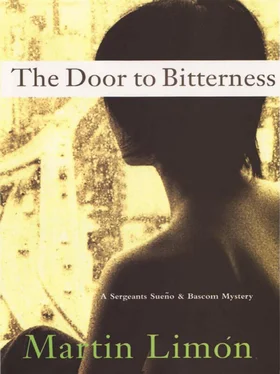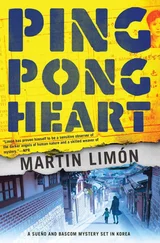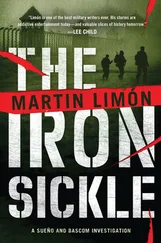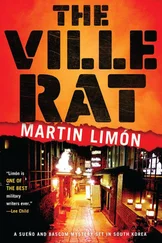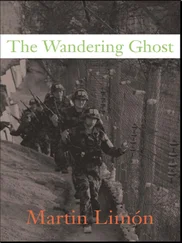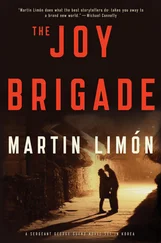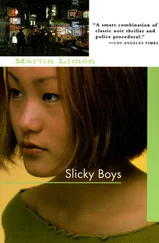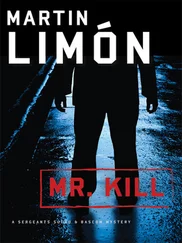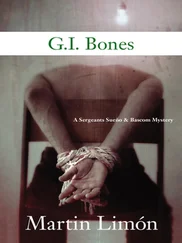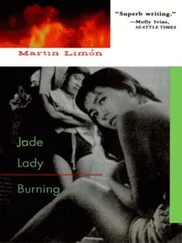Martin Limon - The Door to Bitterness
Здесь есть возможность читать онлайн «Martin Limon - The Door to Bitterness» весь текст электронной книги совершенно бесплатно (целиком полную версию без сокращений). В некоторых случаях можно слушать аудио, скачать через торрент в формате fb2 и присутствует краткое содержание. Жанр: Полицейский детектив, на английском языке. Описание произведения, (предисловие) а так же отзывы посетителей доступны на портале библиотеки ЛибКат.
- Название:The Door to Bitterness
- Автор:
- Жанр:
- Год:неизвестен
- ISBN:нет данных
- Рейтинг книги:4 / 5. Голосов: 1
-
Избранное:Добавить в избранное
- Отзывы:
-
Ваша оценка:
- 80
- 1
- 2
- 3
- 4
- 5
The Door to Bitterness: краткое содержание, описание и аннотация
Предлагаем к чтению аннотацию, описание, краткое содержание или предисловие (зависит от того, что написал сам автор книги «The Door to Bitterness»). Если вы не нашли необходимую информацию о книге — напишите в комментариях, мы постараемся отыскать её.
The Door to Bitterness — читать онлайн бесплатно полную книгу (весь текст) целиком
Ниже представлен текст книги, разбитый по страницам. Система сохранения места последней прочитанной страницы, позволяет с удобством читать онлайн бесплатно книгу «The Door to Bitterness», без необходимости каждый раз заново искать на чём Вы остановились. Поставьте закладку, и сможете в любой момент перейти на страницу, на которой закончили чтение.
Интервал:
Закладка:
One old woman pushing a wooden cart supporting a cast iron stove shouted her lungs out trying to interest passersby in warm chestnuts. When I showed her the sketches of the two men, she claimed to have been shown copies yesterday by a Korean policeman. She hadn’t recognized the two men then; she still didn’t recognize them today. But the new sketch, the sketch of the smiling woman, intrigued her.
“Boasso,” she said, gravely nodding her head. I’ve seen her. “Before noon yesterday,” she continued, “rushing toward a train. I noticed her because she was tall and had a wool scarf tied over her head which I thought was unusual for such a young woman. And she clutched a canvas bag.”
“That’s the only reason you noticed her?” I asked.
The woman blushed slightly.
“Also,” she said, “she’s different.”
“How so?”
“Like you guys,” the old woman said. “Maybe she’s American.”
“Was she alone?”
“No. Someone was with her. A man, I think, but I didn’t pay attention.”
They’d hurried right past her and hadn’t stopped to buy chestnuts. Still, the half-American blonde Korean woman had been unusual enough for the old chestnut vendor to notice.
“Had you ever seen her before?” I asked the old woman.
“Never,” she said. “And not since. But if I spot her again, I’ll grab her and hold her for the police.”
Her eyes gleamed as she told me that. Something about her enthusiasm made me feel uneasy. I shivered in the cold morning air.
I boarded the next train for Seoul.
Ernie would drive the jeep to Seoul yok, the Seoul Train Station and pick me up there.
Why was I taking the train back to Seoul? I wanted to experience what the smiling woman had experienced. I wanted to put myself in the place of two people-one of them clutching a bag full of stolen cash, the other knowing he’d just shot an innocent woman-and see what they’d seen on the train ride back to Seoul.
People glanced at me as I boarded, but most were polite and turned away. I strode up and down a few of the cars, just to get a feel for the train. Wooden benches lined either side of the compartments, and in the center two rows of leather straps hung from metal railings. The train wasn’t too crowded now since it was past 8 a.m., so I found a spot on a bench and plopped down to watch the scenery roll by.
Ernie and I had pretty much nailed the sequence of events. At least to my satisfaction.
The smiling woman, along with two male accomplices, had decided to rob the Olympos Hotel and Casino. To make it easier to bluff their way into the casino’s cashier cage, they needed law enforcement badges and a weapon of some sort. They cased Itaewon. For how long, I don’t know, but eventually the smiling woman found her chance and managed to sit alone with an armed man: me. That’s when she slipped something into my beer. In the alley, her accomplices knocked me over the head, stole my badge and my. 45, and three days later, robbed the Olympos Casino.
After the robbery, the two men split up. One of them fleeing for the anonymity of the Yellow House, the other keeping the money and joining the smiling woman for the train ride back to Seoul. Why the train? It would be leaving right away, it wouldn’t be subject to KNP roadblocks, and the police would be looking for two men traveling together-not a man and a woman.
Had the thief planned on shooting Han Ok-hi? I doubted it. More likely his target had been the owner of the Olympos Casino, probably because he expected there to be more money hidden in a safe in his office. But the owner had fled through the escape hatch in the back wall, the thief had fired in an attempt to stop him, and poor innocent Han Ok-hi had stepped in front of a bullet that hadn’t been intended for her.
That’s the way I saw the case so far.
The next question was, where would the dark thief and the smiling woman go?
Somewhere in Seoul, no doubt. Somewhere they felt safe. Home, probably. But where was that? In a city of eight million people, it wouldn’t be easy to pinpoint them. But there were ways. There had to be.
Once we left the outskirts of Inchon, the train picked up speed. Small stations flashed by: Jeimul-po, Dong-am, Pupyong, Buchon. But we didn’t stop at any of them. This was the express. Seoul Station was our destination. Nothing less. A half hour later, we slowed as we rolled through the densely populated district of Yongdung-po, and then we wound our way onto a bridge that crossed the blue expanse of the Han River. There, on the far river bank, rose the mighty city of Seoul. Green-topped Namsan Mountain loomed to the right, the skyscrapers of the downtown district were straight ahead and to the left. Behind them, craggy granite peaks had long protected the ancient capital from marauding nomads from the north. The train slowed as it reached the far bank and the tracks rose slightly and we rumbled through the southern district of Yongsan. Finally, two miles later, we came to a halt behind the stately old Seoul Station. It was a round-domed building, made of brick, and looked like something out of Doctor Zhivago. It had been built in the 1890s by Russian architects, supposedly a gift to the Korean people from the Czar.
I jumped off the train onto the cement platform and strolled along with the flow of the crowd, surveying directional signs, keeping my eyes open for anything that might give me a hint of where the smiling woman had gone.
At a long row of turnstiles, I stood in line and handed my ticket to a uniformed Korean conductor. The white-gloved man squinted at me curiously but made no comment. Inside the main hall of the station, people hustled back and forth: women balancing bundles on their heads, men pushing carts laden with wood-framed boxes, school children in black military uniforms with square backpacks slung over their shoulders.
Outside, rows of vendors. Six times as many as at the Inchon Station. Systematically, I worked through every stall, showing the sketches of the two men and the smiling woman. Just as systematically, I was told no one had ever seen them before. I showed the sketches to the two policemen working traffic in front of the bus and taxi stands. Again, the response was negative.
The entire left wing of Seoul Station was occupied by 8th Army’s RTO, the Rail Transportation Office. Inside was a counter for traveling GIs to buy train tickets, a small PX, a snack stand, even a barber shop. A little piece of America. Ernie’s highly polished jeep, with its distinctive leather tuck-and-roll interior, sat parked out front. He was waiting for me inside, but somehow I couldn’t bring myself to enter 8th Army’s RTO. It would be too much like leaving Korea. I wanted to stay with the people-Koreans-as the smiling woman and the dark thief had done. So, instead of searching for Ernie, I walked down a cement stairway and joined the crowd in a pedestrian tunnel crossing beneath the busy thoroughfare that ran in front of Seoul Station. There were more vendors on the far end of the underpass and more negative responses. I continued walking into the heart of Seoul. In the distance, I saw the green tile-roofed edifice of Namdae-mun, the Great South Gate, a meticulously preserved remnant of the stone wall that had once surrounded the entire ancient capital. Skyscrapers loomed over dark alleys lined with canvas lean-tos. People swarmed everywhere. Signs hung from brick walls covered with the neatly stenciled hangul lettering or the elegantly slashed characters of Chinese script. Squid tentacles boiled in oil, dumplings steamed in straw baskets. Only a few of the Koreans strolling past me gawked at the tall Miguk wandering lost through their bustling city.
I felt alone in this multitude. Where had she gone? Where was the smiling woman?
Читать дальшеИнтервал:
Закладка:
Похожие книги на «The Door to Bitterness»
Представляем Вашему вниманию похожие книги на «The Door to Bitterness» списком для выбора. Мы отобрали схожую по названию и смыслу литературу в надежде предоставить читателям больше вариантов отыскать новые, интересные, ещё непрочитанные произведения.
Обсуждение, отзывы о книге «The Door to Bitterness» и просто собственные мнения читателей. Оставьте ваши комментарии, напишите, что Вы думаете о произведении, его смысле или главных героях. Укажите что конкретно понравилось, а что нет, и почему Вы так считаете.
